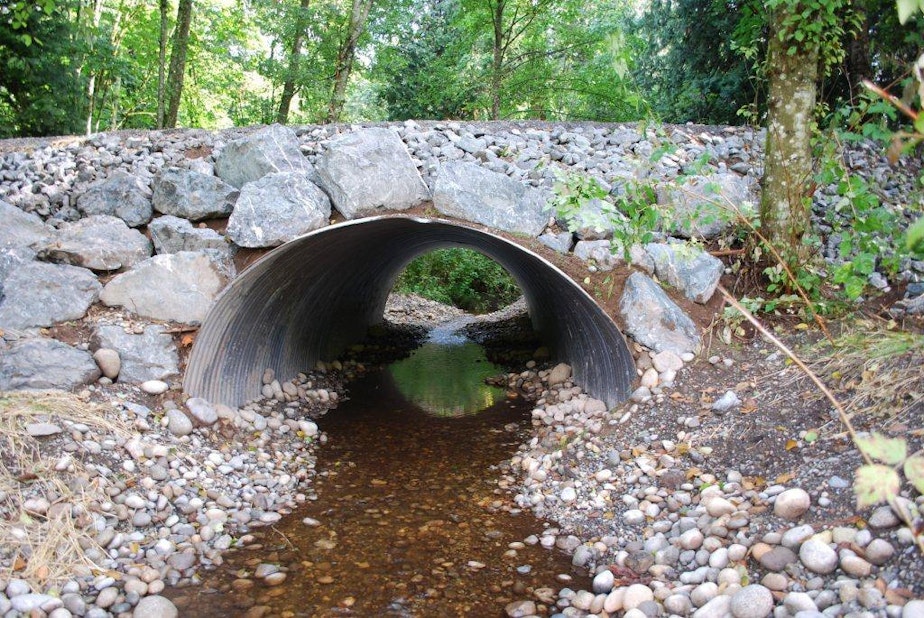Supreme Court gives tribes a victory over Washington state in salmon case

A tie in the U.S. Supreme Court may cost Washington state $2 billion.
The court split 4-4 Monday in a long-running court battle between tribes and the state over salmon-blocking road culverts.
Culverts are the pipes and tunnels that carry streams under roads. If they’re designed poorly, they can block salmon from swimming to habitat upstream. Washington state owns more than 800 culverts that block more than 1,000 miles of streams.
In 2001, 21 tribes sued the state to fix its road culverts. All the lower courts who heard the case ruled in favor of the tribes. This year, Washington Attorney General Bob Ferguson appealed the case to the Supreme Court.
Read More: Immigrant moms in SeaTac prison 'could hear their children screaming'
Sponsored
Only eight justices heard the case because Justice Anthony Kennedy recused himself; he had sat on the 9th Circuit Court of Appeals when it heard an earlier version of this case. The tie means that the 9th Circuit Court ruling from June 2016 stands — Washington must fix the culverts that block the most salmon habitat by 2030.
"Today’s decision marks seven generations of conflict in our struggle to fully exercise and protect the Pacific Northwest salmon resource the way our ancestors envisioned when they signed the treaties and ceded millions of acres of land across Washington,” Quinault Indian Nation President Fawn Sharpe said in a statement.
But the lack of a decisive vote means the Supreme Court did not weigh in on the central question of the case.
Read More: Fatal gun violence looks different for Seattle kids, depending on where they live
The case hinged on a treaty signed in 1855 by the U.S. government and the tribes of the Puget Sound region.
Sponsored
“The tribes agreed to sell their land to the United States in exchange for reserving the right to fish at their usual and accustomed stations,” Bob Anderson, a professor of Native American law at the University of Washington, told KUOW earlier this year.
The question before the Supreme Court was whether the right to fish is the right to put a net in the water or the right for there to be fish to catch. The issue was relevant far beyond Washington: Tribes in six other states in the Pacific Northwest and Midwest all have similar treaties with the U.S. government.
Because of the tie, the court did not decide the question, so, “if there’s another case involving habitat protection, the Supreme Court could revisit the issue,” Anderson said.
Ferguson said in a statement that “it is unfortunate that Washington state taxpayers will be shouldering all the responsibility for the federal government’s faulty culvert design.”
He added that the state will now work with other jurisdictions, such as counties and private landowners, to ensure that all barriers to fish passage are removed in every watershed.
Sponsored
The state has currently allocated less than half the money needed to comply with the court order.
“Obviously this creates a new sense of urgency,” said Tara Lee, a spokesperson for Governor Jay Inslee. “The legislature meets again in January. We’ll come together and there’ll be talks between the departments, the governor and members of the legislature on how to fund those requirements.”
Lee said she’s not sure where legislators will find the money.
In the meantime, the Washington State Department of Transportation will move ahead with fixing the culverts that are in the budget.

